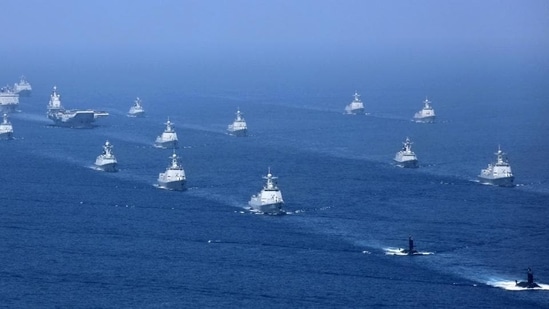India calibrates its South China Sea approach
The study has been authored by Premesha Saha
The territorial and maritime disputes along the South China Sea (SCS) remain unresolved and continue to impede the path to peace and security in the Indo-Pacific region. Beginning in the 1970s, these conflicts have involved China and countries of Southeast Asia, primarily Vietnam, Indonesia, Malaysia, Taiwan, Brunei, and the Philippines: These countries claim that China has been encroaching on their sovereign territories and Exclusive Economic Zones (EEZs) with its aggressive land reclamation and island-building activities. China, too, has been conducting military surveillance in these areas, and building communications and logistics infrastructure in the form of port facilities, military installations, and airstrips. China maintains that these territories are an integral part of its “core interests”, taking an uncompromising stance on the question of sovereignty and its determination to protect the domain militarily.

Extra-regional countries like India and the United States also have stakes in securing the SCS - an endowed ecosystem that is home to rich biodiversity and varied resources, including an estimated 190 trillion cubic feet of natural gas and 11 billion barrels of oil in proved and probable reserves, most of which lie along the margins of the SCS rather than under disputed islets and reefs; much more are potentially undiscovered. India, while not a SCS littoral state, is invested in the maintenance of the rules-based order and freedom of navigation in these sea lanes of communication (SLOCs). Recent statements from the ministry of external affairs illustrate that India intends to move away from its historical “balanced” approach towards China and the SCS disputes, and play a more proactive role, guided by its Act East policy, in particular, as well as its overall Indo-Pacific vision.
Indeed, India has economic, diplomatic and strategic interests in the vital waters of the SCS. Yet, for long, New Delhi adopted a neutral stance in the SCS disputes, refraining from even making official statements that could provoke China’s ire. What India has done is to encourage the competing nations to establish a code of conduct that would ensure “freedom of navigation” and “access to resources”. As ORF analyst, Abhijit Singh, sees it: “A tendency to view the region through a prism of geopolitics and ‘balance of power’ makes Indian decision makers wary of taking a stand on China’s aggressive posturing. Yet the costs of saying and doing nothing are rising for India as China’s firming grip over disputed territories in the SCS portends greater power projection in the Eastern Indian Ocean.”
While India intends to maintain its neutrality when it comes to the issue of sovereignty in these disputes, New Delhi has become more vocal in the recent months, primarily after the June 2020 Galwan Valley clash between Indian and Chinese troops. At the 15th East Asia Summit in November 2020, external affairs minister S Jaishankar stated: “Chinese actions and incidents in the South China Sea had eroded trust in the ongoing negotiations on the proposed code of conduct in the region.” The negotiations, he added, should not be “prejudicial to legitimate interests of third parties and should be fully consistent with the UN Convention on the Law of the Sea (UNCLOS).”
This brief examines the apparent shift in India’s position on the SCS disputes. It outlines the determinants of such a shift; highlights India’s maritime engagements and activities in the region; and analyses the implications of India’s stance on its relations with the Association of Southeast Asian Nations (ASEAN). The brief explores the impacts of India’s SCS approach on the country’s overall Indo-Pacific vision.
The study can be accessed by clicking here
(The study has been authored by Premesha Saha)



